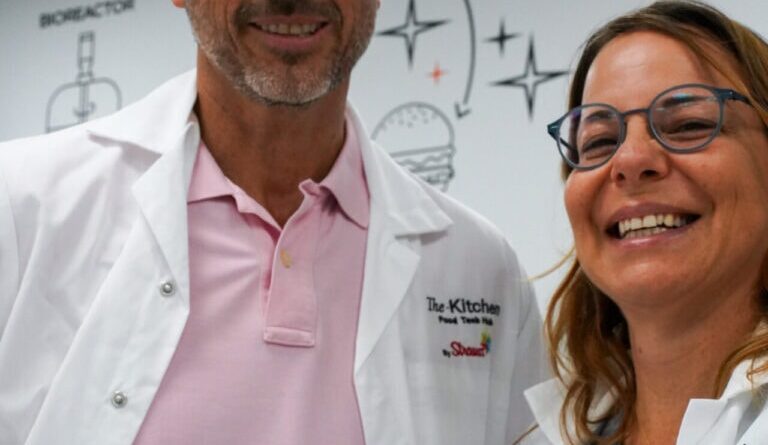Going to bananas for leaves as a new source of protein powder – ISRAEL21c
“I’ve always loved proteins,” says Michal Mayer with a big smile on his face.
“You don’t dedicate your life to this if you don’t like proteins,” the biochemist and head protein researcher at Day 8 tells ISRAEL21c.
Day 8 was founded in July 2023 by scientists turned entrepreneurs Daniel Rejzner, CEO, and Dana Marom, CTO.
This Israeli startup specializes in extracting the plant protein RuBisCO, desired by the food industry, from discarded leaves.
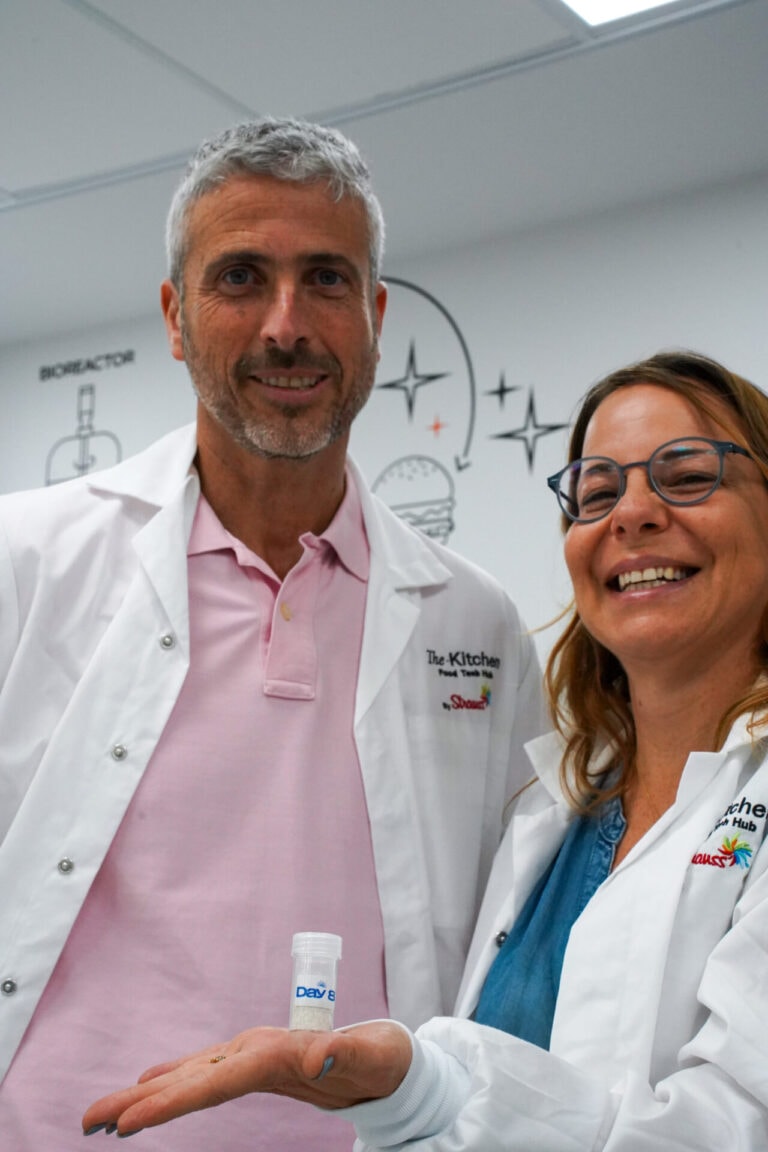
RuBisCO
RuBisCO (short for ribulose 5-bisphosphate carboxylase/oxygenase) is stored in all green leaves and is considered the most abundant enzyme on Earth.
Unlike many other plant proteins, RuBisCO is complete, containing essential amino acids, vitamins, nutrients, minerals and antioxidants.
Until a few years ago, there was a lack of information about the applications of RuBisCO, vis-a-vis human use.
Recently, the plant-based market industry has been converting RuBisCO as a sustainable protein source and selling it. But progress is slow due to high production costs.
This is where Day 8 comes in.
It’s bananas!
The Rehovot-based company developed the first method of extracting RuBisCO protein powder from discarded plant leaves, focusing mainly on banana leaves.
Marom, a biochemist with 20 years of experience in the food industry, explains: “Bananas have an advantage when it comes to food supply because they grow all year round.

“Banana cultivation is one of the most widespread in the world, while its leaves are very large and strong, so we are not in a race for time when we collect these leaves,” he says.
Israel does not import bananas, so local cultivation is done on a large scale. This helped Day 8 clinch deals with the three main domestic girl farmers who are struggling because of the ongoing war in Gaza.
Rejzner, who has a degree in physics, says the process of collecting leaves does not require any changes in farmers’ practices.
“Farmers aren’t the biggest fans of innovation, and they’re often not open to collaboration,” he says, but Day 8’s non-invasive approach was embraced by them.
Environmental protection program
One of the main advantages of the Day 8 method is that it eliminates the costs associated with growing raw products only to extract protein from them, such as soy.
“We knew that working with waste would make us cost competitive and easy to scale up,” says Rejzner.
This method has the potential to recover 2.7 billion tons of unwanted leaf biomass, helping the food industry reduce its environmental footprint.
Marom says: “Basically, it’s taking garbage and taking out goods from agricultural fields that seemed to be empty.
This is in line with Marom and Rejzner’s environmental protection project. Both have created successful startups in the past, but have decided to enter a business sector that they believe will ultimately change the world for the better.
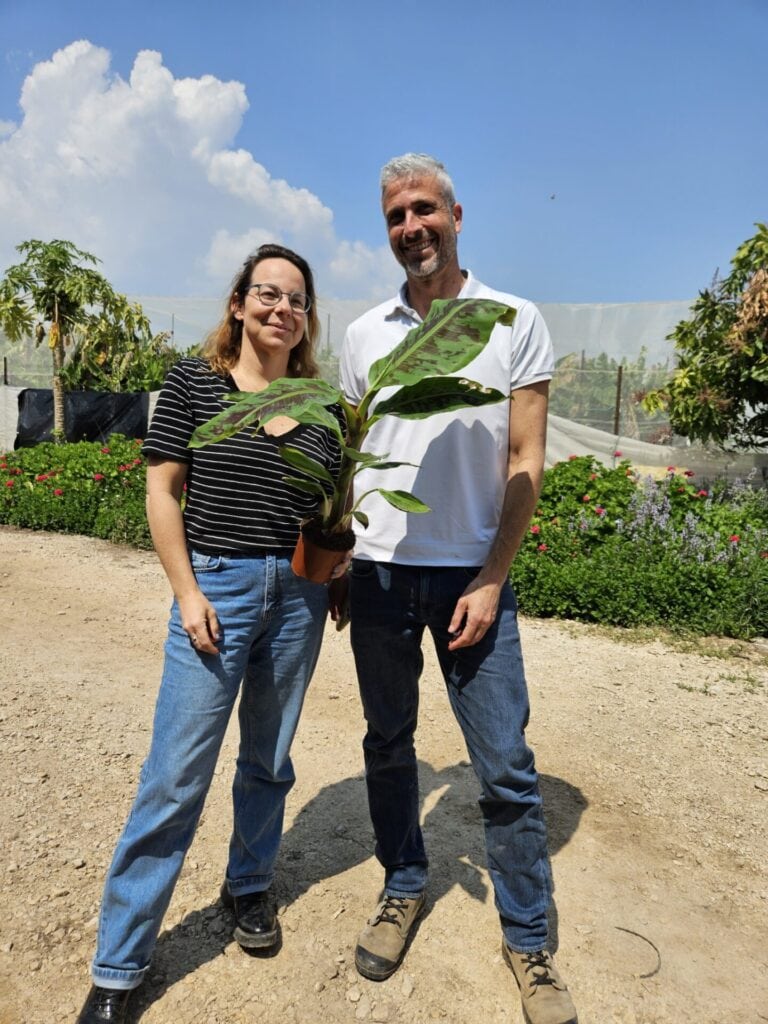
In fact, the name “Day 8” is based on the belief that the world was created in seven days, and on the eighth day it became “our responsibility to protect and care for it.”
“On this symbolic eighth day, we find our mission – to protect the planet and its resources by changing the way we produce and consume food,” says the company’s mission statement.
A different option than other methods
Despite the fact that the protein market is now estimated at $18 billion, it faces many problems, especially the taste, which despite the best efforts of the industry is still not comparable to animal protein .
The founders say that due to the unique activity of Day 8, the protein extracted is completely neutral.
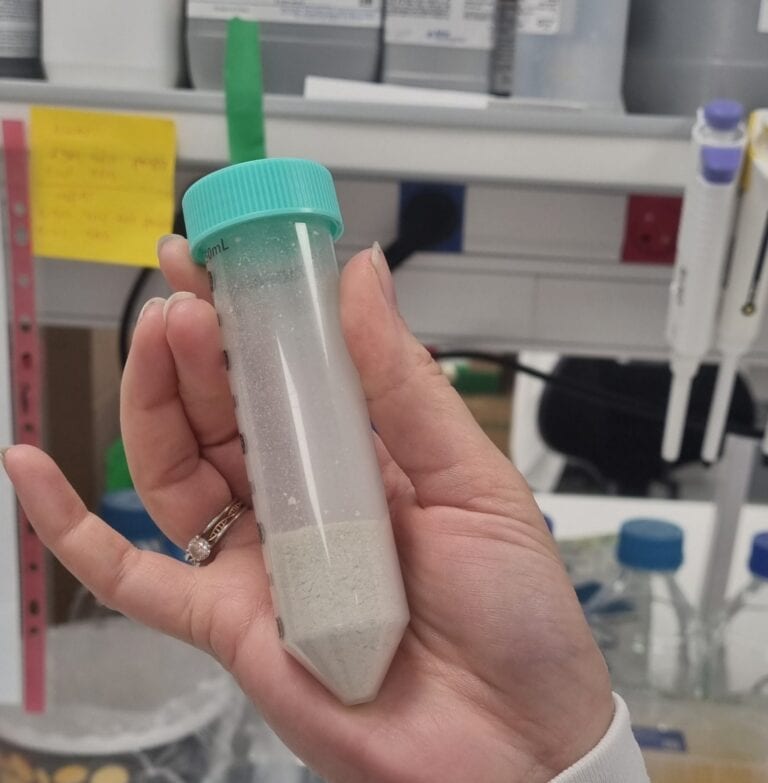
In addition, the extracted product is 100% natural, unlike other proteins that involve genetic modification of the host plant.
Marom explains that the consistency of Day 8 protein powder is very similar to the consistency of protein from eggs.
Rejzner adds that Day 8 products can also serve as a substitute for whey protein, which is a byproduct of cheese production that is widely used in the fitness industry.
Rejzner explains: “Our product is better absorbed by the body, hypoallergenic, vegan, affordable and has no aftertaste.
The same applies to other types of plant-based milk made with Day 8 products, such as vegan milk, cheese and yogurt.
Marom notes that some plant-based milks often contain an endless list of ingredients, many of which are added to mimic the consistency of animal-based milk.
“These products usually contain a lot of fat and very little protein. Our goal is to reduce that list of ingredients; fewer chemicals and healthier.”
The Kitchen
The company now has five full-time and two part-time employees, working alongside food technology incubator and investor The Kitchen FoodTech Hub.
Kitchen Hub last year launched The Kitchen Labs, an innovation center for startups, with the support of the Israel Innovation Authority. This is where the Day 8 labs are currently located.
With initial funding of $750,000 from The Kitchen Hub, the startup has now opened a seed round to raise an additional $2 million to bring the product to market within two years.
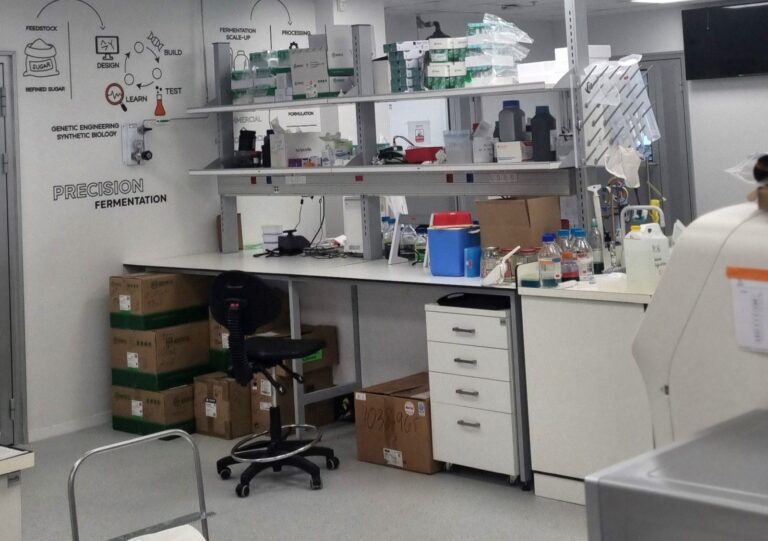
The first target market is the United States, which has a large share of the consumer market and weak food regulations.
“Once it is approved by the FDA, it will be easy to get approval in Europe and Israel,” added Marom.
For more information, click here.
#bananas #leaves #source #protein #powder #ISRAEL21c
